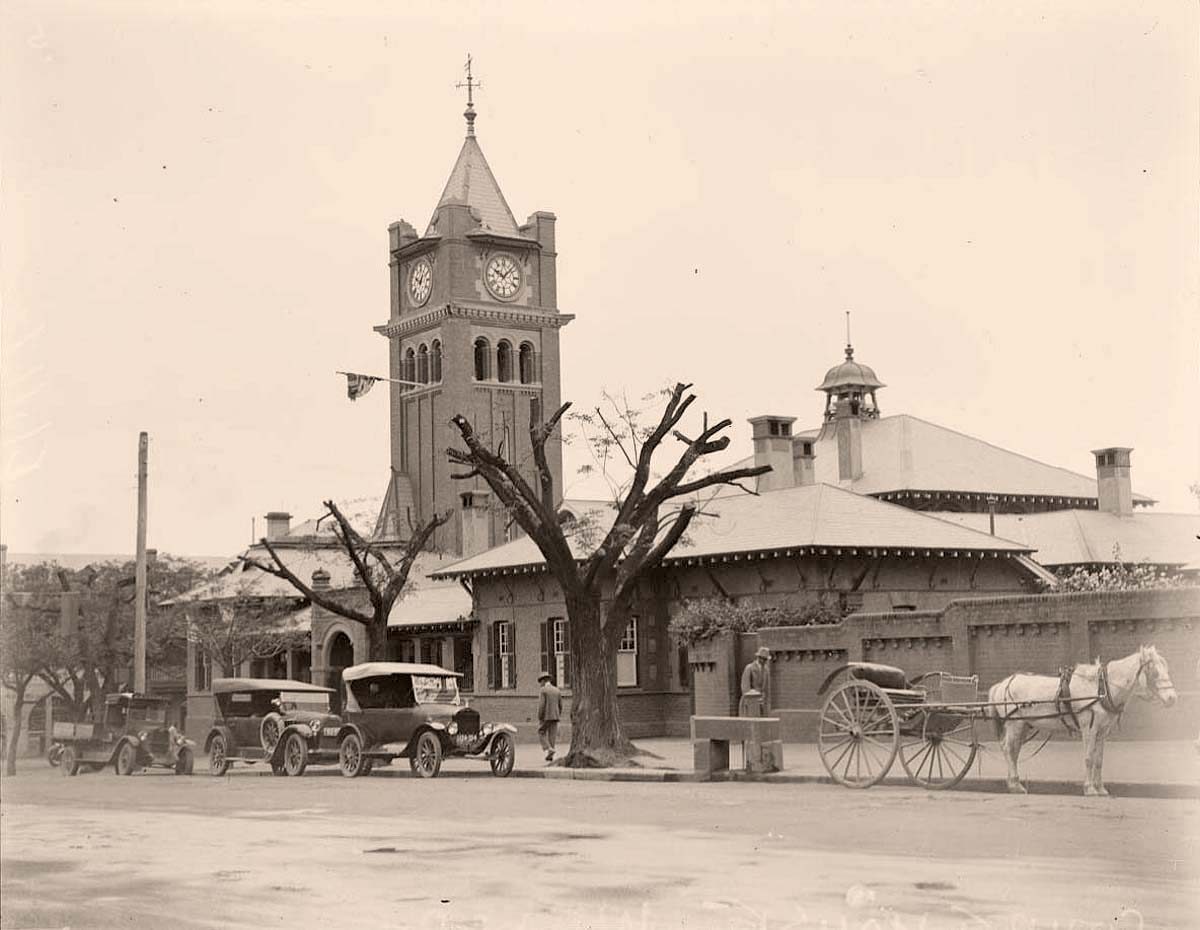
Cars with a horse and buggy parked in front of the courthouse clock in the 1920s. Photo: WWDHS.
The first time we started messing about with time in Australia was back in 1917 when it was considered a wartime solution to help conserve fuel.
Following in the footsteps of Europe, daylight saving legislation was introduced by the war cabinet on 1 January 1917.
The theory was that by shifting the clock there would be less need for lighting as evening events would be done in the summer sunshine and the populace would go to bed early and without the need to burn fuel to keep the lights on.
Clocks across the Commonwealth were advanced one hour at 2 am on New Year’s Day and would stay that way until the last Sunday of March.
Needless to say, it was a controversial move.
A lengthy letter from L. Cox of Tolland, printed in Wagga’s The Daily Advertiser on 11 January 1917, was scathing of the “city individuals or ordinary townsman who, as a rule, lives in the shade” and have followed Britain’s lead and supported the introduction of daylight saving.
“Have our legislators to whom we pay fat salaries, in this period of stress and trouble, nothing better to give us than this tampering with the hands of the clock, as a sham and make-believe instead of what is actually required – practical economy?” Mr Cox asked.
“Is there any human being in Australia, we may ask, who wants more daylight in these summer months of about an average of 16 hours daylight, or is there any comparison to be made between those lengthy sunlit days of Australia and winter of England, with its short days, ‘periods of fog’ and long hours of twilight, from which place our leading lights appear to be making a bad copy.”

Wheat lumpers stacking wheat at Tullamore in 1933. Photo: State Library of NSW.
Farmers in particular were frustrated as their days were dictated more by nature than the clock and accessing services and labour became more difficult.
An article in The Daily Advertiser on 19 January 1917 reflected the debates around the “considerable hardship” of delivering grain to the railway station before the ‘wheat lumpers’ knocked off.
“Even by getting up at daybreak it is not always possible for a farmer delivering produce to arrive at a railway station in time to dispose of his load by what is actually 4 o’clock,” they wrote.
“The obvious way out of this is to extend the time for the closing of the goods yard.”
In the same week, Wagga Council read out a letter from their counterparts in Windsor, urging all NSW local government areas to “repeal the Daylight Saving Act”.
It was declared “unnecessary and against the best interests of the residents of this municipality and inimical to its industries,” and a letter was sent to the prime minister.
On the appointed day, Sunday 25 March, Mr WW Bayliss, caretaker of the Wagga courthouse, climbed the steps to stop the clock for an hour at 6 am.
It was noted that most citizens would enjoy an extra hour in bed before church, however, some of the more zealous community members suggested adding an extra hour to the service!
The Wagga Express celebrated the end of the early starts and hoped that “this will be the end of daylight saving experimenting”.
Alas, it was not.










